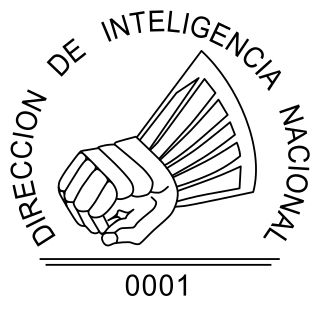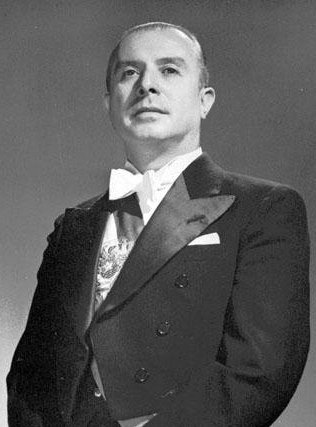| |||||
| Decades: | |||||
|---|---|---|---|---|---|
| See also: | |||||
The following lists events that happened during 1983 in Chile.
| |||||
| Decades: | |||||
|---|---|---|---|---|---|
| See also: | |||||
The following lists events that happened during 1983 in Chile.

The territory of Chile has been populated since at least 3000 BC. By the 16th century, Spanish invaders began to raid the region of present-day Chile, and the territory was a colony between 1540 and 1818, when it gained independence from Spain. The country's economic development was successively marked by the export of first agricultural produce, then saltpeter and later copper. The wealth of raw materials led to an economic upturn, but also led to dependency, and even wars with neighboring states. Chile was governed during most of its first 150 years of independence by different forms of restricted government, where the electorate was carefully vetted and controlled by an elite.

The Dirección de Inteligencia Nacional or DINA was the secret police of Chile during the dictatorship of Augusto Pinochet. The DINA has been referred to as "Pinochet's Gestapo". Established in November 1973 as a Chilean Army intelligence unit headed by Colonel Manuel Contreras and vice-director Raúl Iturriaga, the DINA was then separated from the army and made an independent administrative unit in June 1974 under the auspices of Decree 521. The DINA existed until 1977, after which it was renamed the Central Nacional de Informaciones or CNI.

Juan Carlos Onganía Carballo was President of Argentina from 29 June 1966 to 8 June 1970. He rose to power as dictator after toppling the president Arturo Illia in a coup d'état self-named "Argentine Revolution".
Juan Manuel "Mamo" GuillermoContreras Sepúlveda was a Chilean Army officer and the former head of the National Intelligence Directorate (DINA), Chile's secret police during the dictatorship of General Augusto Pinochet. In 1995, he was convicted of the murder of Chilean diplomat Orlando Letelier in Washington, DC, and sentenced to seven years in prison, which he served until 2001. At the time of his death, Contreras was serving 59 unappealable sentences totaling 529 years in prison for kidnapping, forced disappearance, and assassination.

The Socialist Party of Chile is a centre-left political party founded in 1933. Its historic leader was President of Chile Salvador Allende, who was deposed in a coup d'état by General Augusto Pinochet in 1973. The military junta immediately banned socialist, Marxist and other leftist political parties. Members of the Socialist party and other leftists were subject to violent suppression, including torture and murder, under the Pinochet dictatorship, and many went into exile. Twenty-seven years after the 1973 coup, Ricardo Lagos Escobar won the Presidency as the Socialist Party candidate in the 1999–2000 Chilean presidential election. Socialist Michelle Bachelet won the 2005–06 Chilean presidential election. She was the first female president of Chile and was succeeded by Sebastián Piñera in 2010. In the 2013 Chilean general election, she was again elected president, leaving office in 2018.

The 1973 Chilean coup d'état was a military overthrow of the democratic socialist president of Chile Salvador Allende and his Popular Unity coalition government. Allende, who has been described as the first Marxist to be democratically elected president in a Latin American liberal democracy, faced significant social unrest, political tension with the opposition-controlled National Congress of Chile, and economic warfare ordered by United States president Richard Nixon. On 11 September 1973, a group of military officers, led by General Augusto Pinochet, seized power in a coup, ending civilian rule.

Popular Unity was a left-wing political alliance in Chile that stood behind the successful candidacy of Salvador Allende for the 1970 Chilean presidential election.

Gabriel Enrique González Videla was a Chilean politician and lawyer who served as the 24th president of Chile from 1946 to 1952. He had previously been a member of the Chamber of Deputies from 1930 to 1941 and senator for Tarapacá and Antofagasta from 1945 to 1946. A long-time member and leader in the Radical Party, he left the party in 1971 over its support for socialist president Salvador Allende. From 1973 until his death in 1980 he became an active collaborator and participant in the dictatorship of Augusto Pinochet, acting as vice president of the Council of State from 1976 onwards. As vice president of the council, he helped draft the current Chilean constitution of 1980.

Jorge Eduardo Alessandri Rodríguez was the 26th President of Chile from 1958 to 1964, and was the candidate of the Chilean right in the crucial presidential election of 1970, which he lost to Salvador Allende. He was the son of Arturo Alessandri, who was president from 1920 to 1925 and again from 1932 to 1938.

An authoritarian military dictatorship ruled Chile for seventeen years, between 11 September 1973 and 11 March 1990. The dictatorship was established after the democratically elected socialist government of Salvador Allende was overthrown in a coup d'état backed by the United States on 11 September 1973. During this time, the country was ruled by a military junta headed by General Augusto Pinochet. The military used the breakdown of democracy and the economic crisis that took place during Allende's presidency to justify its seizure of power. The dictatorship presented its mission as a "national reconstruction". The coup was the result of multiple forces, including pressure from conservative groups, certain political parties, union strikes and other domestic unrest, as well as international factors.

Raúl Silva Henríquez SDB was a Chilean prelate of the Catholic Church, a cardinal from 1962. He served as Archbishop of Santiago de Chile from 1961 to 1983 and as Bishop of Valparaíso from 1959 to 1961. Both as Archbishop and in retirement, he was an advocate for social justice and democracy and a forthright vocal critic of the military dictatorship of Augusto Pinochet—"a constant thorn in the Government's side".

On 11 March 1990, Chile the military regime of General Augusto Pinochet ended and was replaced by a democratically elected government. This transitional period lasted roughly two years although some processes may have lasted significantly longer. Unlike most democratic transitions led by either the elite or the people, this democratic transition process is known as an intermediate transition – a transition involving both the regime and the civil society. Throughout the transition, as the regime increased repressive violence, it simultaneously supported liberalization – progressively strengthening democratic institutions and gradually weakening that of the military.

Augusto José Ramón Pinochet Ugarte was a Chilean army officer and military dictator who ruled Chile from 1973 to 1990. He was the leader of the military junta from 1973 to 1981, and was declared President of the Republic by the junta in 1974 and thus became the dictator of Chile, and from 1981 to 1990 as de jure president after a new constitution which confirmed him in the office was approved by a referendum in 1980. His time in office remains the longest of any Chilean ruler.
Events in the year 1973 in Chile.
The following lists events that happened during 1975 in Chile.
The following lists events that happened during 1976 in Chile.
The following lists events that happened during 1982 in Chile.

The Democratic Alliance was a Chilean political coalition existing between 1983 and 1988 that was composed of political parties and organisations that opposed the military regime led by Augusto Pinochet.